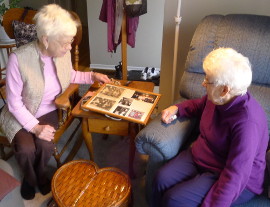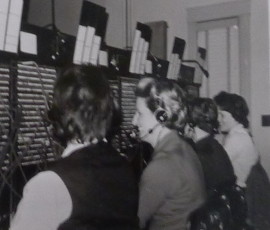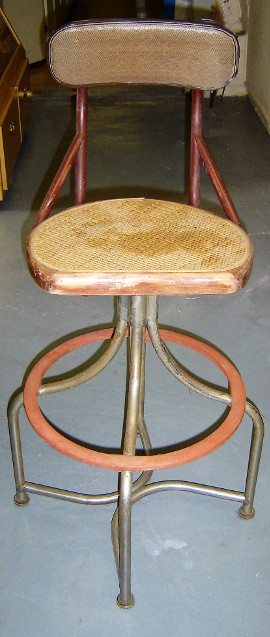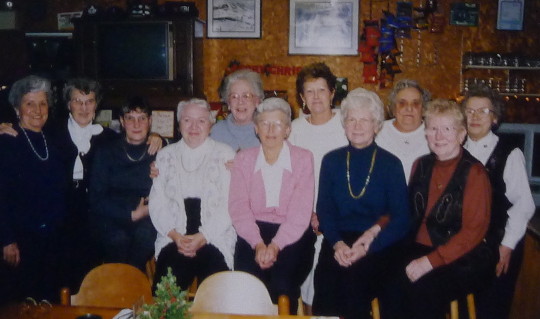Stephen Vance, Staff

A group of Meaford women haven’t forgotten those simpler times, and they have been recalling them twice each year for 50 years, when they gather to reminisce about the jobs they lost in March of 1966 when the technology had changed, allowing telephone customers to dial their own numbers.

“You got to know all the numbers off by heart,” Doris recalls – and phone users got to know the operators’ names by heart as well.
Roughly 15 switchboard employees worked in Meaford’s Bell switchboard office at the time, and they kept the phone lines connected 24 hours a day, over three shifts; there was a cot in the back for the night operator.
“There were two cords, the back one you picked up and you plugged it in, and then you’d ask the number, and they’d give you the number, and you picked up the front cord and plugged it into whatever number they wanted, and then there were little keys that you pulled down, and the phone rang at the person’s house,” explained Ina.
The women say that a Bell switchboard operator job was a good job to have in a small town in the 1960s. The pay? About $17 per week.
“It took half of it to pay my room and board,” recalls Doris.
What about emergencies? Doris recalled a light affixed to a pole outside Meaford Hall where the police department was located at the time, which would alert the night officer if the phone had been ringing inside the building while he was out on patrol. When he returned to the office, the overnight officer could then call the switchboard operators to ask who had been calling.
 After the Bell switchboard office closure in 1966, Ina donated her switchboard chair to the Meaford Museum (see photo). The chair is still in the possession of the museum, kept safe in storage. All the switchboard operators kept their headphones after their last day. Ina still has hers, and Doris’s son-in-law, who today works for Bell in Toronto, has her old headphones.
After the Bell switchboard office closure in 1966, Ina donated her switchboard chair to the Meaford Museum (see photo). The chair is still in the possession of the museum, kept safe in storage. All the switchboard operators kept their headphones after their last day. Ina still has hers, and Doris’s son-in-law, who today works for Bell in Toronto, has her old headphones.
“We had a party after it closed,” said Doris with a chuckle.
In the 50 years since, the former Bell employees have been getting together twice each year – once around Christmas time, and the other in the summer – for a meal and some laughs as they catch up and recall the simpler times of the 1960s when technology changed, and in the process eliminated their jobs.
As the years have gone on, the gatherings have become smaller as some pass on, while others have moved away or into nursing homes.
“There’s a lot of them gone now, there’s only maybe eight of us left,” said Doris. This year the group of former switchboard operators went for lunch at a local restaurant.
Asked if they had any amusing stories from their time on the switchboard, both smiled widely.
“The one I can remember, I don’t want to put in the paper,” Doris said with a laugh.
Ina, however, recalled a co-worker on a Sunday morning slipping out of the office after connecting a phone call for a man at a pay phone.
“She jumped off her seat and said ‘I’ll be back in a minute’.” The woman went to the corner to see if she could spot the man. “She said, ‘He had such a nice voice I had to see what he looked like, but when I got there he wasn’t that nice’,” remembers Ina with a laugh.
Asked if they email or text each other to arrange their annual gatherings, the pair laugh and shake their heads. No, they pick up their land-line phones and call each other, just as they did 50 years ago.












